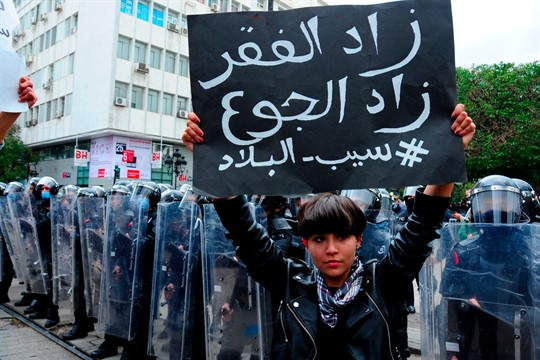As Tunisia marked the 10th anniversary of the removal of dictator Zine el Abidine Ben Ali on Jan. 14, people poured into the streets, defying a nationwide COVID-19 lockdown. While every January brings some form of popular protest around the revolution’s anniversary, things are different this year.
Last month’s milestone serves as a grim reminder of what democracy has not brought: jobs, social justice and an end to endemic corruption. And this year, the country is in the midst of twin crises: an economy ravaged by the coronavirus pandemic and a deep political divide due to increasing polarization. Tunisians, often chanting protest slogans from a decade ago, have organized sustained demonstrations in recent weeks to decry all of these social ills.
This is not the first time Tunisia has found itself at a breaking point. In the months following the revolution in 2011, those who had lived their lives in the opposition or in exile were suddenly placed in charge, tasked with building a democratic state and negotiating over the essence of what Tunisia would represent in its new form. A subsequent power struggle led to the assassinations of two leftist political figures, Chokri Belaid and Mohamed Brahmi, in February and July of 2013, respectively, at the hands of hard-line Salafi jihadists. The killings nearly derailed the transition
 Eurasia Press & News
Eurasia Press & News



